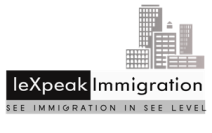There is no standard definition forIn order to qualify as a master's degree or higher for H1B Masters quota, the consideration would be a lot more than a simple nomenclature of the degree.US advance degree for cap exemption
In order to qualify as a masters degree (cap exemption),
- The degree must be one for which a Bachelors degree in any field is required in order to obtain the “masters” degree.
- The degree must be issued by a
U.S. educational institution located in any state in US which admits as regular student’s only persons having a certificate of graduation from a school providing secondary education or the recognized equivalent of such a certificate.
- The degree must be issued by institution that is accredited by a nationally recognized accrediting agency or association or, if not so accredited, is an institution that has been granted pre-accreditation status by such agency or association that has been recognized by the secretary for the granting of pre-accreditation status
FAQ
Question 5. Are these exemptions only for jobs requiring master's degrees or above?
No. They are based upon the educational credentials of the foreign national, not the job requirements.
--
Question 6. Is there any way that a person with only foreign degrees can get one of the advanced degree (or Master's Cap) exemptions? What if his or her degree is equivalent to a
No. Without exception, only those with
Courtesy - http://www.murthy.com/news/n_h1bnew.html
It is important to note that an H-1B applicant does not actually have to be relying on the U.S. Master's degree for the H-1B petition. For example, if an H-1B applicant holds a bachelor's degree in computer science, and a U.S. Master's Degree in Music, he or she could apply for an H-1B for a computer programmer position, and still rely on the unrelated, U.S. Master's Degree in Music for quota purposes.

No comments:
Post a Comment